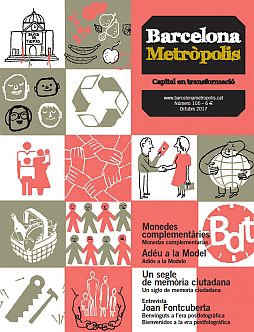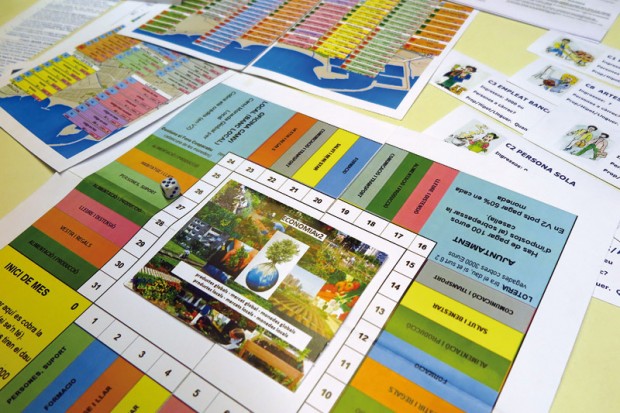Ecopolis is a game that takes its inspiration from Monopoly, but instead of teaching us how to speculate, it tries to help us understand how the use of complementary currencies can improve a town’s economy.
It’s played in two parts: the first, with purely capitalist criteria, encourages speculation, plunder and planetary destruction, while the second is based on criteria of sustainable, social economics. Here the playing board represents a city where there is a complementary currency obtained through work for the community or by offering hand-made products, services or expertise. Products can be paid for partly in global currency and partly in the local currency.
Each player chooses a character at random and an associated economic status. As the game progresses, they come up against needs that have to be covered by what the society has to offer. In the social economy part, possibilities for covering needs are far greater than in the capitalist part and the ecological footprint is far smaller.
There is a collective gain, which is made clear by the fact that all the players have work and are helping to improve the city, and there is also an individual gain, which is measured according to each player’s ability to reduce their ecological footprint.
Ton Dalmau, the game’s inventor, explains, ‘The game was created in 2010 to understand how the complementary currency we were designing for Vilanova i la Geltrú might work. A time came, in October 2010, when we said “Let’s play for real”, and that was the start of the turuta, Vilanova i la Geltrú’s social currency, a community project.’
‘Globalisation has served to create a lot of things that can’t be produced locally (such as computers, mobiles, aeroplanes and cars), but it puts it all on one market, even the products that had always been produced locally, and this has a high energy cost and affects individuals’ and the planet’s health,’ Dalmau continues. ‘The power of complementary local currencies is that they restore the value of things we can produce locally (such as food, clothes, furniture and houses). We feel that real globalisation is “glocalisation” (global plus local), as global can’t work if local is destroyed.’




